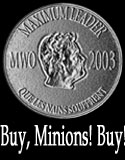The delayed triumph of the Union is not just attributable to leadership (sorry, Maximum Leader).
Soldiers
We ought not to forget the boys at the pointy end of the spear. When the war broke out, many Southerners bragged that ûôÂûÂãô˜û ãOne reb can whip ten Yankees!ûôÂûÂãô˜ûô
They may have been right ûôÂûÂãô˜ûÂã˜é in 1861.
The South was overwhelming rural and the boys of the South were, on average, a physically tougher lot than the clerks and factory workers of the North. Rural living meant that they had more experience with firearms. The rural lifestyle meant that a much greater percentage of Southerners were skilled horsemen. Most importantly, the institution of slavery had hardened Southerners to violence.
One way that slaveowners justified power over their slaves was to feminize Africans and emphasize the masculinity of the slaveowners. This emphasis on masculinity and the willingness to use violence to reinforce power lead to a violent culture where slights would be resolved by the code duello. As the insightful Mr. Veblen once notes, the lower classes often ape the upper classes, and the willingness to engage in violence trickled down to the poor whites. The only Northern subgroup that displayed the physical courage of the rough-and-ready poûôÂûÂãô˜ûÂãôÂ whites was the Irish. This physical courage would be a major reason why so many Irishmen became sergeants in the early days of the war.
Eventually, and inevitably, the SouthûôÂûÂãô˜ûÂãôÂs advantage in physical toughness evaporated. Chubby clerks will lose the flab and develop foot callouses after a few road marches. Mental courage in the line of fire will emerge. A warrior ethos can be built by NCOs. Even a greenhorn can learn to shoot a rifle. By late 1862, the caliber of the Civil War infantrymen was roughly equal.
Horsemanship is harder to acquire and the skill gap persisted in the cavalry through most of the war. However, technology can be a great equalizer and the NorthûôÂûÂãô˜ûÂãôÂs development of breech-loaded seven shot Spencer Carbines overcame that gap.
Defensive War
The North had to occupy and hold Southern territory, which is a more time consuming task than simply defeating the enemy (a lesson we seem to have forgotten when planning for the occupation of Iraq). Even when the outcome of a war is not in doubt, a defender who digs in his heals can prolong the agony. Witness the tenacity of Eastern-front German soldiers in WW II and the quick collapse of the Western front. Even when they knew the war was lost, the South prolonged the agony.
Southern Determination
Even in the face of defeat, the South fought on. Many ûôÂûÂãô˜û ãwhat-ifersûôÂûÂãô˜ûô who think the war could have ended otherwise donûôÂûÂãô˜ûÂãôÂt seem to be aware that a good proportion of the South knew the war was over by late 1862.
Once it became clear that foreign intervention was not going to happen (the Maximum Leader has given a good summary of why), Southerners knew they were in trouble. You can see this by the way the home guard uses more and more draconian measures to stop desertion. Desertion was a major problem for the SouthûôÂûÂãô˜ûÂãôÂs armies, a fact that is often minimized by the nostalgic romanticism Sons of the Confederacy. At Appomattox, General Lee bid a tearful farewell to a tiny proportion of stalwarts from the once proud Army of Northern Virginia but many more folks had taken ûôÂûÂãô˜û ãShankûôÂûÂãô˜ûÂãôÂs MareûôÂûÂãô˜ûô home.
One can also see evidence of the foreknowledge of doom by the collapse of the Confederate economy. When a government issues unbacked paper currency and bonds, folks will only take that currency or buy those bonds if they have confidence that the government will exist a few years down the road.
Finally, surviving sermons from the era reveal that minister were already preaching about the ûôÂûÂãô˜û ãsacred lost cause,ûôÂûÂãô˜ûô in which the Christian South was willingly sacrificing itself to the Godless, heathen North. The reward would be heavenly, not worldly independence. Even if desertion was a problem, a good chunk of the South was willing to fight on in the face of catastrophe.
Religion played a huge role in the SouthûôÂûÂãô˜ûÂãôÂs resistance. One of the greatest gaps in current understanding of the War Between the States is our ignorance of the central role of religion. We donûôÂûÂãô˜ûÂãôÂt talk about it too much today because conservatives donûôÂûÂãô˜ûÂãôÂt like to talk about fundamentalist religion being a huge pillar in the edifice of slavery. Liberals donûôÂûÂãô˜ûÂãôÂt like to acknowledge that fundamentalism can be a force for great good ûôÂûÂãô˜ûÂã˜é Christian fundamentalists were the burning engine of the abolitionist movement that eventually provoked the South into the war.
In the 1820s it had become apparent that slavery was not going to die a natural death. The cotton gin had made slavery profitable for the foreseeable future. Southern theology began to move away from its tolerance of slavery as a necessary evil and towards a model in which slavery was ordained by God. Northerners, alarmed at this ûôÂûÂãô˜û ãperversionûôÂûÂãô˜ûô of religion, began to emphasize the parts of the Bible inimical to the peculiar institution.
This growing religious chasm was the primary reason that a compromise on the issue of slavery was impossible. Our failure to teach about religionûôÂûÂãô˜ûÂãôÂs role in the War makes it harder to understand why all those 1860 last-minute compromises were stillborn. In class, I explain to the kids that the division over slavery is analogous to the modern division over abortion. If I believe that abortion is murder/slavery is ungodly, I am not going to compromise with folks who say ûôÂûÂãô˜û ãwell, if you donûôÂûÂãô˜ûÂãôÂt believe in it, donûôÂûÂãô˜ûÂãôÂt do it, but leave me alone.ûôÂûÂãô˜ûô While the fundamentalists were a minority in the North (albeit a growing one), Southerners in general were more religious than their more secular brothers North of the Mason-Dixon line.
In 1864, the grey-clad boys in the thinning line had grown up in Churches where slavery was regularly praised and abolitionists routinely denounced as heretics. Folks will fight on against long odds when they are fighting for God.
Finally, Southern determination was also driven by a fear of the social upheaval that defeat would bring.
Plantation owners, deprived of their labor force, would be bankrupt.
Other than the slaves themselves, the greatest victims of the slave system of the South were the poor whites ûôÂûÂãô˜ûÂã˜é Hinton HelperûôÂûÂãô˜ûÂãôÂs ûôÂûÂãô˜û ãHill BilliesûôÂûÂãô˜ûô ûôÂûÂãô˜ûÂã˜é who were trapped in a generational tarpit of poverty. The plantation families monopolized the good land. The poor white subsistence farms in the hills did not have access to markets and the planter-controlled state governments blocked efforts for internal transportation improvements. You canûôÂûÂãô˜ûÂãôÂt outcompete slaves on a wage basis. In short, life for the poor white farmer sucked.
How can you feel better about your own poor life situation? By feeling superior to someone else. If slavery ended, blacks would become equal to those poor whites. Horrors!
Finally, the SouthûôÂûÂãô˜ûÂãôÂs historical paranoia about slave insurrection played a role. People really believed that blacks, once freed, would go on Nat Turnerish rampages, burning houses, raping women, and butchering children. People will fight against long odds if they believe that a loss will result in their wives and children being victimized. Students of history will recall that the Klan was founded as a Christian organization dedicated to preserving the purity of white women from the ûôÂûÂãô˜û ãravening sex-crazedûôÂûÂãô˜ûô freemen.
Southern determination was deep. Sherman realized this and the major goal of his drive through the deep south was psychological. He may have shaved years off of the war. Jefferson Davis and his cabinet made plans for a mountain-based guerilla war that could have proved interminable, but in the Spring of 1865, the South, her spirit broken, would not follow her leaders to that particular hell.
Slow Mobilization
On the Northern side of the equation, President Lincoln had a hard time marshalling the full might of the Union. While he was determined to end slavery, and abolitionists became the majority in Congress with the withdrawal of the Southern delegations, there was significant opposition to an abolitionist agenda in the North ûôÂûÂãô˜ûÂã˜é particularly in the butternut region of the Midwest and the industrial centers of the Northeast. Even more importantly, several border states crucial to the war effort were wavering about secession.
Lincoln masterfully manipulated South Carolina into firing the first shots at Fort Sumter ûôÂûÂãô˜ûÂã˜é he had learned well from President PolkûôÂûÂãô˜ûÂãôÂs war message. LincolnûôÂûÂãô˜ûÂãôÂs attempt to stand athwart an enraged patriotic public with his ûôÂûÂãô˜û ãspot resolutionsûôÂûÂãô˜ûô had cost him his congressional seat in 1848. He knew that even folks who were pro-slavery would become angry when the South fired on union soldiers.
In the initial stages of the War, Lincoln denied that he would end slavery. This was credible because he had been a Constitutional stickler throughout his career (the major reason he had grabbed the Republican nomination away from William ûôÂûÂãô˜û ãHigher-Law-Than-The-ConstitutionûôÂûÂãô˜ûô Seward. He stayed with his theme that he would only bar slavery from the territories. The South wasnûôÂûÂãô˜ûÂãôÂt fooled because they knew that if no more slave states were admitted to the union, a constitutional amendment would eventually remove the slavery protections crafted in Philadelphia, but moderates who didnûôÂûÂãô˜ûÂãôÂt think long term didnûôÂûÂãô˜ûÂãôÂt understand this (an ignorant electorate? Say it isnûôÂûÂãô˜ûÂãôÂt so!).
In fact, the need to delay the explicit addition of abolition as a war-aim caused Lincoln considerable political grief. He was forced to repudiate General FremontûôÂûÂãô˜ûÂãôÂs local abolition measures and went head to head with the radicals in Congress who thought him insufficiently committed to the cause.
Of course, it wasnûôÂûÂãô˜ûÂãôÂt that Lincoln wasnûôÂûÂãô˜ûÂãôÂt an enemy of slavery. He just wanted to get his ducks in order first. As soon as he had the border states under firm control (folks who claim that Bush has been the worst civil liberties president in history are just ignorant ûôÂûÂãô˜ûÂã˜é Lincoln was quite Machiavellian in his suppression of dissent), he and Seward pushed forward their plan to ûôÂûÂãô˜û ãConstitutionallyûôÂûÂãô˜ûô end slavery using the Article II warmaking powers (folks who claim BushûôÂûÂãô˜ûÂãôÂs expansion of Article II warmaking powers is unprecedented are just ignorant). The Emancipation was phrased as a war measure, freeing no actual slaves. But it did end any hope of Northern intervention.
The Emancipation Proclamation also illustrates the NorthûôÂûÂãô˜ûÂãôÂs difficulty in mobilizing a complete effort. Anti-black riots broke out all over the urban north: ûôÂûÂãô˜û ãI ainûôÂûÂãô˜ûÂãôÂt dying to free no slave! Screw the draft!ûôÂûÂãô˜ûô The Irish in particular were in the grip of schadenfreude: ûôÂûÂãô˜û ãMy life as a factory worker may suck, but at least IûôÂûÂãô˜ûÂãôÂm not black!ûôÂûÂãô˜ûô
The last element of this slow mobilization was racism. Although a majority of Northerners wanted to end slavery (witness the 1860 vote for Lincoln), that didnûôÂûÂãô˜ûÂãôÂt mean that they believed in equality or even liked blacks.
Frederick Douglass wanted to have blacks fight for their own freedom, but the prospect of blacks with guns was terrifying to most Northerners. It took Lincoln some time to politically prepare the way for black regiments, so a large number of eager volunteers were not used. Eventually, 200,000 blacks joined the colors.
Lincoln
The factors that kept the South on life support for so long also illustrate a major reason why the South was doomed. LincolnûôÂûÂãô˜ûÂãôÂs political leadership, ability to balance moderates and radicals, and moral force kept the Union in the war. The South could only win if the North gave up. With Lincoln at the helm, the North would accept no substitute for victory.


